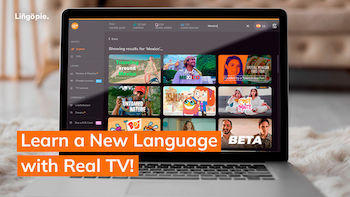
How you look at something determines what you see, and ultimately, it determines how you relate to it.
One prevailing direction I see in language teacher training is that it tends to concentrate on the subject of the teaching: “the language”.
However, the subject of the teaching is not the language but the learner. The object is the language. Not only in the grammatical sense of being the person who does the action of learning but also because it is through the object (the language) that they learn about themselves or grow.
As Bruce Lee said: “All types of knowledge ultimately mean self-knowledge.”
So, when we shift that perspective and accept that we are not teaching a language to learners, but instead, we are teaching learners about themselves through the language, the approach changes and the priorities also change. We are actively guiding them to shed light on parts of themselves that were in the dark.
Whether it be an experienced language learner who has learned many other languages, or an inexperienced one who is learning a non-native language for the first time, the main subject is still them, the individual learning about themselves through the lenses of a different language.
Therefore, this act of learning about themselves is personal, and we, teachers and coaches, are being entrusted with a very personal process that has very little to do with the language we know and “teach”. It has everything to do with the learner we work with. And the language becomes something different for every student. Not only the process, of course, the process will be different, but also the language. Because if we honour the learner, the language we claim to teach is not ours. It’s theirs. And we are just mere midwives, assisting with our experienced hands to the birth of a part of the learner that was in seed, in the womb, waiting to come into the world.
And continuing with the birthing metaphor. The learner’s “baby-self” will grow. Depending on the birth process, the bonding, feeding and nurturing from both the “parent” (learner’s primary/native self) and the midwife–doula assistance and accompaniment, the baby will grow strong and become a mature, confident adult or will grow stunted, traumatized or stay in an impotent, ineffectual stage.
Now that we have established how personal this whole relationship is, you’ll probably see how important emotions are and how important it is for us, as midwives, to be emotionally literate to help our “birthing” learners bond and grow into healthy babies and, hopefully, independent adults.
See? The language itself is less important and is not even at the centre of learning. The language taught is only a tool, a catalyst for the learner’s personal growth. The learners are bound to sometimes experience unconscious emotions elicited from what exists in their unconscious mind: their idiosyncrasies and identities, cultural biases and sociocultural conditioning, or their traumas around different areas that are linked to or impacted by learning…
So, our role is to see what emotion (coming from thought, belief, shadow…) is arising in them, identify it, and help them identify it so they can name it, move through it, and eventually grow from it.
Thisis our role, not teaching them to say things in a new language.
Our job is a guiding hand, not the contents of a textbook. Our role is to understand that emotions will happen no matter what because our learners are humans with personal lives, and so are we.
Also, our role is to bring emotion to the learning context, to bring the heart, because as the Portuguese-American neuroscientist Antonio Damasio said: “No emotion. No learning”. So, if we want our learners to acquire effectively, assimilate and integrate the tool, that is, the language, we need to actively and purposefully bring emotions to the learning process. This also takes us back to the need for emotional literacy and intelligence because when we prompt the learner to express and feel emotions, we need to provide a safe space for them so we don’t harm them.
Do you believe emotional literacy is an essential skill for language coaches? Let me know your thoughts about this perspective or if you want support to develop your teaching practice. I’m happy to help.
María Ortega García is a mentor for language educators, a Spanish Language Coach & Teacher with over 14 years of experience in the language industry. She is also a content creator and a self-published author. Find her work at https://mariaortegagarcia.com
Published originally on LinkedIn, March 17, 2023.


